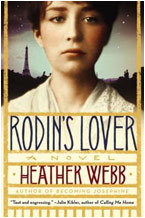I’m psyched to announce a new program called #PubLaw! Every Wednesday for the duration of the summer, Susan Spann, author of CLAWS OF THE CAT and publishing lawyer, will break down our burning questions about author contracts—both indie and traditional—and other highly HELPFUL information authors need to know to survive the ever-shifting waters of the publishing world.
We WANT to hear from you!! Please leave any legal publishing questions you have in the comments and Susan will tackle them for next week’s edition. Also, be sure to follow #PubLaw on Twitter every Wednesday at 3 p.m. EST.
TAKE IT AWAY, SUSAN!
Big thanks to friend and fellow author Heather Webb for letting me camp out at Between the Sheets to answer authors’ questions about publishing law.
Today, we’ll start with a question I’m asked quite frequently:
“What’s the difference between copyright and trademark? As an author, do I need to register both?”
The short answer is no, most authors don’t need trademarks, though trademarks may become relevant later on if you start to market merchandise featuring your series or characters’ names and likenesses.
What’s the difference? Read on:
COPYRIGHT LAW covers creative works – like novels – which are “fixed in a tangible medium of expression.” Copyright protection is automatic and begins at the moment the work is created.
Authors don’t have to register their works with the U.S. Copyright office, but registration allows the author to recover additional damages (money) from infringers, so all authors should register their works with the copyright office at publication. Many publishers do this for you, but if yours does not, you can register your works online at http://www.copyright.gov.
TRADEMARK LAW covers words, names, symbols or slogans used in commerce to identify and distinguish the source of goods.
Novels, blog entries and short stories are all too long for trademark protection – they’re governed by copyright law instead. Titles aren’t subject to trademark either—though the name of a series (like “The Hardy Boys Mysteries”) can be trademarked under the right circumstances.
There are other differences between copyright and trademark too. A few of particular interest to authors:
1. Duration. Copyright lasts for the life of the author plus 70 years (95 years from publication for anonymous or entity “authors.”). Trademark lasts as long as the mark is “actively used in commerce.”
2. Originality. Trademark requires far more originality than copyright.
3. Length. Copyright governs creative works of any length, from Tweets to full-length novels. Trademark governs only “words, slogans, logos, and phrases.”
Copyright and trademark also have some similarities: violation of either is called “infringement” and is legally actionable. Intent is not a required element of infringement in either case. If you use a legally protected work without permission (or a legally-recognized exception), you are liable to the trademark or copyright holder.
If you have additional questions about trademarks or copyrights, consult an experienced attorney who specializes in intellectual property. That, or hop into the comments and let me know – I’ll be back next week with another installment of Ask #PubLaw!
Thank you, Susan!
 ABOUT SUSAN
ABOUT SUSAN
Susan is a publishing attorney and historical mystery author. Her debut novel CLAWS OF THE CAT (Minotaur) releases July 16, 2013. When not writing or representing clients, Susan enjoys traditional archery, martial arts, horseback riding, online gaming, and raising seahorses and rare corals in her highly distracting marine aquarium. She still consumes books – almost as avidly as spicy Thai dinners. Susan lives in Sacramento with her husband, son, three cats, one bird, and a multitude of assorted aquatic creatures. She is a member of Mystery Writers of America, the Historical Novel Society and the Rocky Mountain Fiction Writers’ Association and is represented by literary agent Sandra Bond of Bond Literary Agency. For more information, contact her at her website HERE or on Twitter.
b
3 Comments
Join the conversation and post a comment.















I’m coming late to the party so I hope this gets seen–can I ask how one secures a trademark? I have create an original logo for my fantasy series and I’d like to protect it that way since I’ve put it on my website and business cards.
Great, easy-to-understand article. Thank you so much. 😀
Hello and thank you for the question! This is a great one, and useful to a lot of people, so I’ll answer it next Wednesday (May 15) here at Between the Sheets’ next Ask #PubLaw session!
Hi Susan and Heather,
Thanks for doing these posts! I have a question about copyright. When using short pop-culture-type references in one’s novels, would things like having one of your characters call another one “Robocop” or quoting song lyrics be a no-no without permission from the original creator?
Thanks!
Tammy